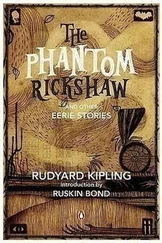Hathi dipped his trunk into the water as a sign that he did not wish to talk.
"But—but—but," said Mowgli, turning to Baloo, "why did not the First of the Tigers continue to eat grass and leaves and trees? He did but break the buck's neck. He did not eat . What led him to the hot meat?"
"The trees and the creepers marked him, Little Brother, and made him the striped thing that we see. Never again would he eat their fruit; but from that day he revenged himself upon the deer, and the others, the Eaters of Grass," said Baloo.
"Then thou knowest the tale. Heh? Why have I never heard?"
"Because the Jungle is full of such tales. If I made a beginning there would never be an end to them. Let go my ear, Little Brother."
Just to give you an idea of the immense variety of the Jungle Law, I have translated into verse (Baloo always recited them in a sort of sing–song) a few of the laws that apply to the wolves. There are, of course, hundreds and hundreds more, but these will do for specimens of the simpler rulings.
Now this is the Law of the Jungle—as old and as true as the sky;
And the Wolf that shall keep it may prosper, but the Wolf that shall break it must die.
As the creeper that girdles the tree–trunk the Law runneth forward and back—
For the strength of the Pack is the Wolf, and the strength of the Wolf is the Pack.
Wash daily from nose–tip to tail–tip; drink deeply, but never too deep;
And remember the night is for hunting, and forget not the day is for sleep.
The Jackal may follow the Tiger, but, Cub, when thy whiskers are grown,
Remember the Wolf is a hunter—go forth and get food of thine own.
Keep peace with the Lords of the Jungle—the Tiger, the Panther, the Bear;
And trouble not Hathi the Silent, and mock not the Boar in his lair.
When Pack meets with Pack in the Jungle, and neither will go from the trail,
Lie down till the leaders have spoken—it may be fair words shall prevail.
When ye fight with a Wolf of the Pack, ye must fight him alone and afar,
Lest others take part in the quarrel, and the Pack be diminished by war.
The Lair of the Wolf is his refuge, and where he has made him his home,
Not even the Head Wolf may enter, not even the Council may come.
The Lair of the Wolf is his refuge, but where he has digged it too plain,
The Council shall send him a message, and so he shall change it again.
If ye kill before midnight, be silent, and wake not the woods with your bay,
Lest ye frighten the deer from the crops, and the brothers go empty away.
Ye may kill for yourselves, and your mates, and your cubs as they need, and ye can;
But kill not for pleasure of killing, and seven times never kill Man .
If ye plunder his Kill from a weaker, devour not all in thy pride;
Pack–Right is the right of the meanest; so leave him the head and the hide.
The Kill of the Pack is the meat of the Pack. Ye must eat where it lies;
And no one may carry away of that meat to his lair, or he dies.
The Kill of the Wolf is the meat of the Wolf. He may do what he will,
But, till he has given permission, the Pack may not eat of that Kill.
Cub–Right is the right of the Yearling. From all of his Pack he may claim
Full–gorge when the killer has eaten; and none may refuse him the same.
Lair–Right is the right of the Mother. From all of her year she may claim
One haunch of each kill for her litter, and none may deny her the same.
Cave–Right is the right of the Father—to hunt by himself for his own:
He is freed of all calls to the Pack; he is judged by the Council alone.
Because of his age and his cunning, because of his gripe and his paw,
In all that the Law leaveth open, the word of the Head Wolf is Law.
Now these are the Laws of the Jungle, and many and mighty are they;
But the head and the hoof of the Law and the haunch and the hump is—Obey!
The Miracle of Purun Bhagat
The night we felt the earth would move
We stole and plucked him by the hand,
Because we loved him with the love
That knows but cannot understand.
And when the roaring hillside broke,
And all our world fell down in rain,
We saved him, we the Little Folk;
But lo! he does not come again!
Mourn now, we saved him for the sake
Of such poor love as wild ones may.
Mourn ye! Our brother will not wake,
And his own kind drive us away!
Dirge of the Langurs.
There was once a man in India who was Prime Minister of one of the semi–independent native States in the northwestern part of the country. He was a Brahmin, so high–caste that caste ceased to have any particular meaning for him; and his father had been an important official in the gay–colored tag–rag and bobtail of an old–fashioned Hindu Court. But as Purun Dass grew up he felt that the old order of things was changing, and that if any one wished to get on in the world he must stand well with the English, and imitate all that the English believed to be good. At the same time a native official must keep his own master's favor. This was a difficult game, but the quiet, close–mouthed young Brahmin, helped by a good English education at a Bombay University, played it coolly, and rose, step by step, to be Prime Minister of the kingdom. That is to say, he held more real power than his master, the Maharajah.
When the old king—who was suspicious of the English, their railways and telegraphs—died, Purun Dass stood high with his young successor, who had been tutored by an Englishman; and between them, though he always took care that his master should have the credit, they established schools for little girls, made roads, and started State dispensaries and shows of agricultural implements, and published a yearly blue–book on the "Moral and Material Progress of the State," and the Foreign Office and the Government of India were delighted. Very few native States take up English progress altogether, for they will not believe, as Purun Dass showed he did, that what was good for the Englishman must be twice as good for the Asiatic. The Prime Minister became the honored friend of Viceroys and Governors, and Lieutenant–Governors, and medical missionaries, and common missionaries, and hard–riding English officers who came to shoot in the State preserves, as well as of whole hosts of tourists who traveled up and down India in the cold weather, showing how things ought to be managed. In his spare time he would endow scholarships for the study of medicine and manufactures on strictly English lines, and write letters to the "Pioneer," the greatest Indian daily paper, explaining his master's aims and objects.
At last he went to England on a visit, and had to pay enormous sums to the priests when he came back; for even so high–caste a Brahmin as Purun Dass lost caste by crossing the black sea. In London he met and talked with every one worth knowing—men whose names go all over the world—and saw a great deal more than he said. He was given honorary degrees by learned universities, and he made speeches and talked of Hindu social reform to English ladies in evening dress, till all London cried, "This is the most fascinating man we have ever met at dinner since cloths were first laid."
When he returned to India there was a blaze of glory, for the Viceroy himself made a special visit to confer upon the Maharajah the Grand Cross of the Star of India—all diamonds and ribbons and enamel; and at the same ceremony, while the cannon boomed, Purun Dass was made a Knight Commander of the Order of the Indian Empire; so that his name stood Sir Purun Dass, K.C.I.E.
Читать дальше












